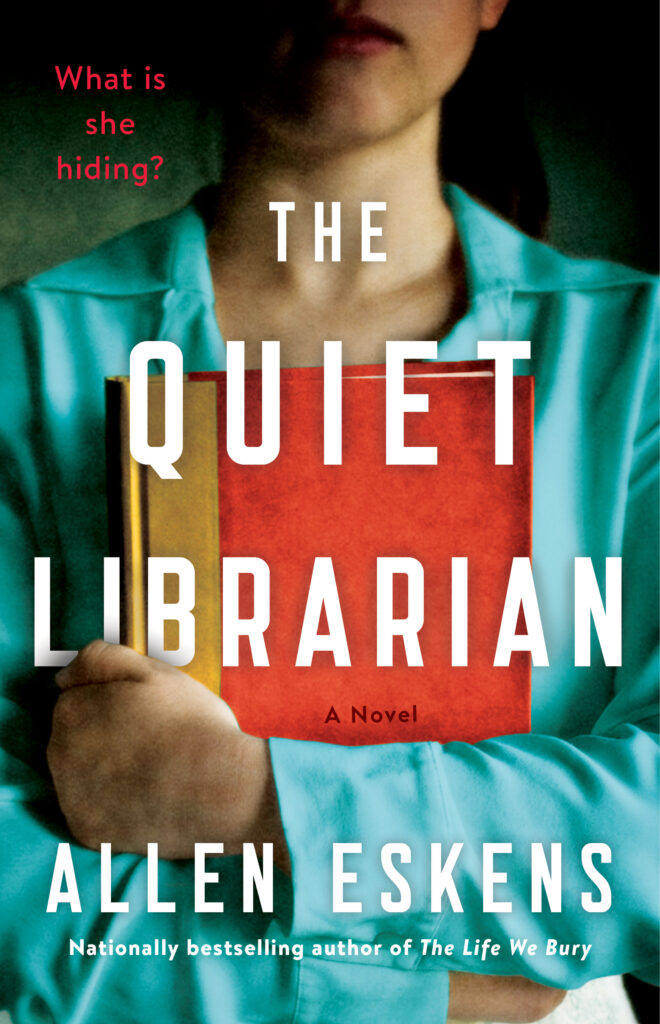
Hana comes out of the restroom in search of mooring, her gait made unsteady by a tumult of memories. It is Amina’s hand, of all things, that finds its way through the muddle, the way Hana held it on that darkest of nights so long ago—and again later, on the brightest of days when Amina gave birth to her only child, Sara. Years later, Hana held Amina’s hand as Sara walked down the aisle at her wedding. Hana sat with Amina the day Sara gave birth to Dylan and she held Amina’s hand as they lowered Sara’s casket into the ground two years later.
The last time she held Amina’s hand had been just a month ago at Dylan’s eighth birthday. It had been a brief clasp as they parted, a gesture by Amina to let Hana know that she understood why Dylan’s eighth birthday had been so difficult for Hana. Had Hana known that it would be their last touch, she would have held on until they both lost the ability to grasp. She and Amina were supposed to grow old together, share the aches of old age over coffee and cake. Now, she will never be able to touch the hand of her friend again.
Claypool had asked about the significance of the blue marble; he may as well have asked the significance of rain in a time of drought. But why had Amina handed the marble to those men? If the blue marble had been a message, it was one meant for her alone. But what had Amina been trying to say?
Hana slips into a row of books to get away from Barb’s watchful eyes and to steady herself against a shudder of grief. Poor Amina. A lifetime ago they survived a crucible that would have laid waste to the strongest of men. Why now? Why Amina? Unlike Hana, Amina had left no wake. It doesn’t make sense.
Hana tries to put herself in Amina’s head after the fall, enough strength for one last gesture. In her mind Hana pulls the necklace off, holds it in her hand, but nothing comes to her.
Claypool said that Amina’s killer tore her condo apart, like he was searching for something. Or had he been he searching for someone? After all these years . . . could it be possible? Why not? Hana knows all too well how the bitter taste of revenge can linger on the tongue.
She composes herself, steps out of the stacks, and makes her way to one of the library’s computers. She opens an incognito search so that the computer won’t hold onto the information, then types the name Nura Divjak. She finds the site she’s looking for. It ends with the suffix “.rs”—Republic of Serbia.
She clicks on it, steadying her breath as the page fills her screen.
It’s a rendering of what they believe she should look like now that she is nearly fifty-years old. They have the nose wrong. She has grown into it over the years so it doesn’t look as big as it had when she was a teenager. Thirty years ago, they had used an old school photograph. Now it’s an artist’s sketch of a woman who has no smile. That part, at least, they got right.
Hana looks around. No one seems to be paying attention to her, still her heart beats hard in her chest. She scrolls down to read:
REWARD—EIGHT MILLION DINARS
For the capture of
Nura Divjak – the Night Mora
Wanted for the murder of innocent civilians
In Bosnia Herzegovina—1995
The first time she saw her wanted poster it had been a worn piece of paper handed to her by a friend, back when the reward had been only three million dinars, not eight. That older poster also promised the reward for either her capture or her death. They had removed the death part; apparently the international community frowns upon such assassinations. Still, the people who might hunt her would know that the money—about seventy-thousand dollars—will be paid either way.
A rustle of shoes on carpeting pulls Hana’s attention. Deb Hansen is wandering toward her, a book in her hand, her finger pressed between pages to mark her place. Hana closes the computer window, and Deb takes a seat in the chair beside her.
If the Farmington library had a patron saint, it would be Deb Hansen. She had been the director when Hana got the job, back when Hana could barely speak English. Of all the people who applied for the position, Deb had taken on the one with no degree in library science, no high-school diploma. She had gone with a refugee whose past was a mix of half-truths and forgeries. She had hired a girl who hid terrible secrets beneath her drab cardigan sweaters. Deb had given Hana a break when she didn’t deserve one, and Hana never forgot that kindness.
Now, Deb serves as president of the Friends of the Library, which makes sense because, even in retirement, she spends more time at the library than she does at home. And if Hana ever needs reassurance that kindness exists in this world, she need only think of Deb.
Deb leans into Hana and in a low voice asks, “Are you okay?”
“Is it that obvious?” Hana says.
Deb shrugs and then nods.
“A close friend has died,” she says.
“Oh, I’m so sorry. It wasn’t one of our patrons, was it?”
“No.”
“And that man . . . who was talking to you . . . he’s a relative?”
“A detective.”
“Oh my.” Deb clutches a hand to her collar. “Was your friend . . . I mean, was she . . .?”
“She fell from a balcony,” Hana says. “He wanted some background on her, that’s all.”
“You should ask Barb for the rest of the day off,” Deb whispers. “Hell, take the rest of the week. You’ve earned that much.”
“I think I’d rather stay here. I don’t want to be alone with my thoughts right now.”
Deb puts a hand on Hana’s shoulder. Gives a pat. “Just . . . don’t lock it away,” she says. “Grief needs to be felt—expressed. When my Arnold died, I bottled it up to the point that I couldn’t eat or sleep. Then one day I cracked. I just started crying and couldn’t stop. All day from sun up to sun down. I had said goodbye to him at the funeral, but it wasn’t until that day of crying that I said goodbye to him in my heart.”
Deb takes a moment to herself before continuing. “All I’m saying is don’t be afraid to take some time off if you need it.”
“Thanks.” Hana gives Deb’s hand a pat.
Deb stands. “And if you need a friend to talk to . . .”
“I will,” Hana says.
After Deb leaves, Hana’s thoughts return to Amina. She had once said that their friendship had been chiseled from marble. Hana liked the sentiment, even though she saw relationships more as water. Marble is inflexible, solid, unchangeable unless the stone splits apart. On the other hand, water can join and separate. It can be large and turbulent like a sea or small and placid like a puddle. And if relationships were capable of high tides and low tides, she and Amina had been on a low tide over the last few months, the lull born of history. Amina’s grandson, Dylan had reached an age that brought back too many painful memories for Hana, and rather than face them, Hana had pushed Amina—and Dylan—away.
Excerpt continues below cover reveal.

Maybe that was why Hana knew so little about the man named Zaim. Occasional phone calls, a few texts here and there, were no substitute for an afternoon of deep conversation. Had she asked more questions, talked to Amina more, maybe she would have seen the danger coming.
Their last conversation had been a week ago. Amina told Hana that she had ended her relationship with Zaim. At the time, Hana had been relieved because all she knew about the guy was that he liked to flatter Amina and then borrow money.
“I don’t trust him,” Amina had said. “He’s not the man I thought he was.”
“All men say nice things when they are trying to take something from you.” Hana said. “Some men just cannot be trusted. It’s good that you found this out early.”
“There’s no doubt, he is not to be trusted,” she’d said.
Hana pressed for more, but Amina gave a wistful sigh and said that it was a long story best told over a cup of coffee.
They never had their cup of coffee, and now, they never will.
Zaim wasn’t the man Amina thought he was. She didn’t trust him. Those off-handed comments now take on immeasurable weight.
Hana opens a new search on her computer and types Zaim into the box. How many men named Zaim can there be in America? She gets eight million hits. She narrows the search by adding the word Minnesota to the query and gets just under one million hits. Amina must have mentioned his last name at some point, but, try as she might, nothing comes to Hana.
He was from Bosnia though. Hana remembers asking Amina if he had been in the war.
“We haven’t talked about that,” Amina had said. “Questions like that open doors that I’m not ready to walk through.”
After twenty minutes of dead ends, Hana closes her computer screen. She doesn’t know his last name or what he looks like. She may as well be searching the internet with her eyes closed.
If the blue marble had been meant as a warning, the message was garbled. All Hana could think was that someone from a place far away and a time long ago had found their way to Minnesota. If someone from the war had at last killed Amina, it made sense that they would also be here for her too.
Hana had learned, long ago, that it was better to be the hunter than the hunted. But she had been a very different person then, a girl forged by tragedy and rage, capable of acts that would stun her current coworkers. Still, the vestiges of that girl must reside within her somewhere, relics buried beneath thirty years of ash and rust. The time has come to dig.
__________________________________


